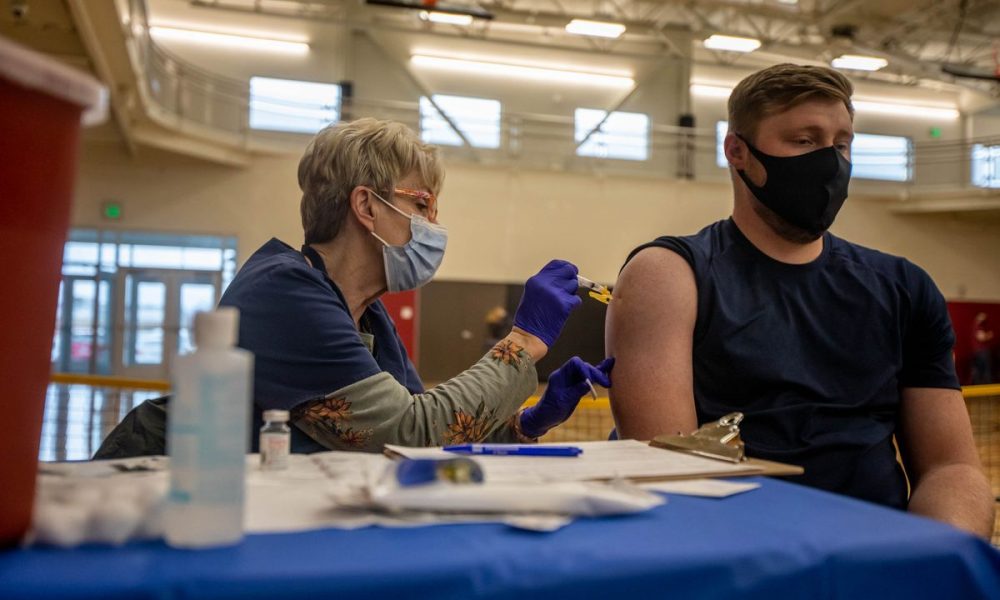Health officials in Alaska informed a health care worker who had a severe allergic reaction to a COVID-19 vaccine within 10 minutes of getting a shot.
What We Know:
- U.S. health authorities warned doctors to look out for unusual allergic reactions when they rolled out the first vaccine, made by Pfizer and Germany’s BioNTech. Britain had reported a few similar allergic reactions a week earlier.
- The Juneau health worker started showing signs of an anaphylactic reaction, with increased heartbeat, shortness of breath, skin rash, and redness on Tuesday, says Dr. Lindy Jones, the emergency room medical director at Bartlett Regional Hospital. She was treated with epinephrine and other medicines for what officials determined was anaphylaxis, a severe allergic reaction. She was held overnight but has recovered.
First severe reaction to Covid vaccine reported in U.S. https://t.co/I26rAnG1r0 via @nbcnews
— Willitza (@Willitza3) December 17, 2020
- Unlike the British cases, the Alaska woman is middle-aged and has no history of allergic reactions. In the U.S., vaccine recipients are expected to stay around after the injection in case of an allergic reaction, in case they need immediate treatment, similar to what happened with the health worker in Juneau.
- “Anaphylaxis is a rare event following vaccination, and CDC is evaluating the case,” the CDC said in a statement. “CDC and public health experts prepared for a side effect like this after reports of anaphylaxis were made in England. Proper medical treatment for severe allergic reactions must be immediately available if an anaphylactic reaction happens.
“Public health experts and CDC’s Vaccine Adverse Event Reporting System quickly detected the case, demonstrating that the vaccine safety monitoring program is working as planned, with the ability to rapidly detect and evaluate adverse events.”
- Getting either the Pfizer-BioNTech shot or the Moderna version can generate some temporary discomfort, just like many vaccines do. The Pfizer/BioNTech and the Moderna vaccines require two doses, given 21 and 28 days apart, respectively.
- In addition to a sore arm, people can feel fever and flu-like symptoms such as fatigue, aches, chills, and headaches. They last about a day, maybe bad enough that recipients miss work, and are more common after the second dose and in younger people.
- Pfizer and Moderna covid 19 vaccine uses mRNA technology, which encodes a portion of the spike protein found on the surface of SARS-CoV-2, the virus that causes COVID-19. AstraZeneca created the vaccine using a sort of virus called an adenovirus. They genetically modified the virus to carry a gene for a coronavirus protein, theoretically training a person’s immune system to identify the real coronavirus.
These reactions are a sign that the immune system is revving up. COVID-19 vaccines tend to cause more of those reactions than a flu shot, about what people experience with shingles vaccinations.



